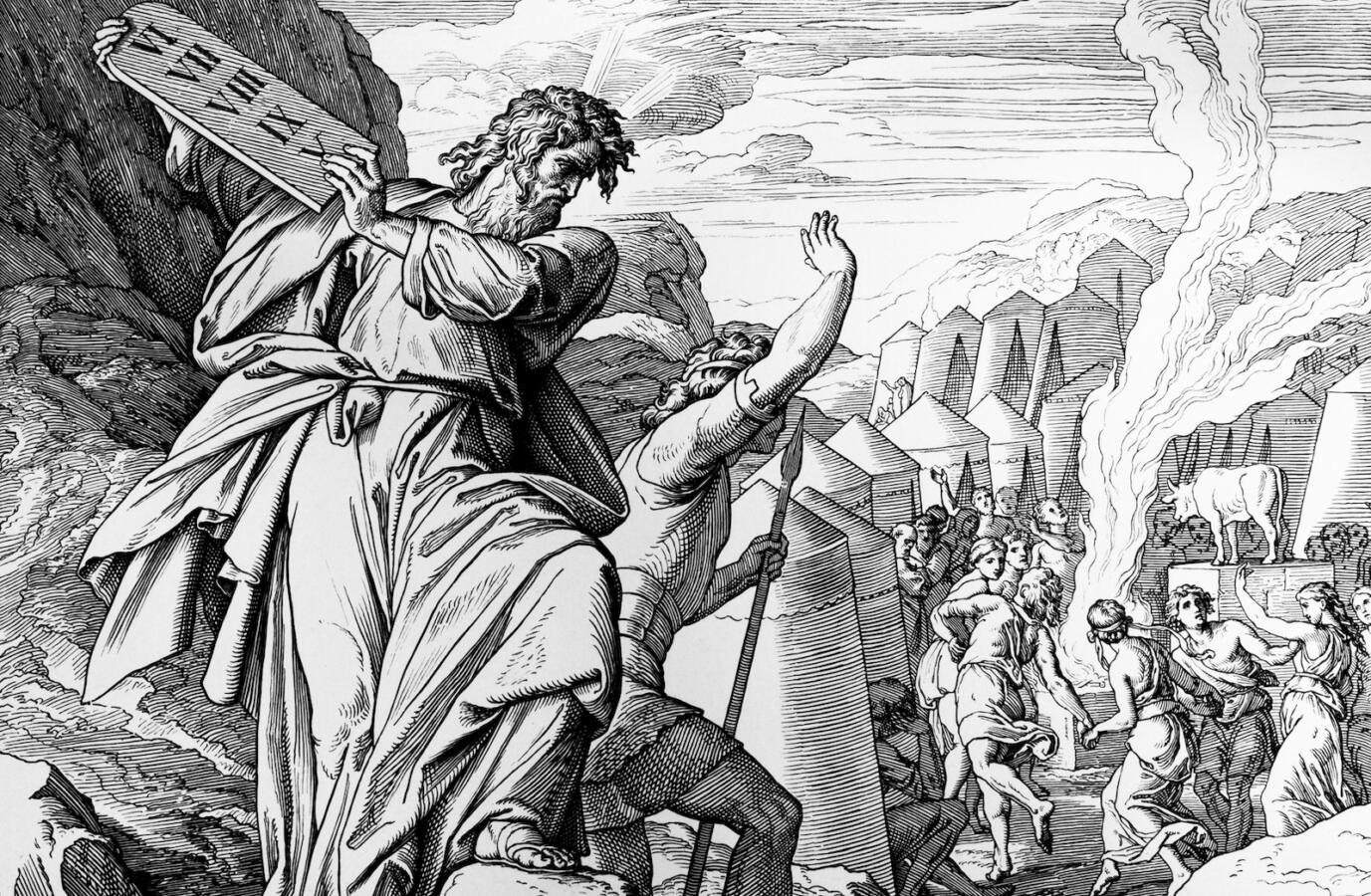According to the Torah, Moses received two stone tablets from God on Mount Sinai. Written on both sides by God’s hand in God’s handwriting, these tablets contained what are often called the Ten Commandments, but which the text literally describes as the ten “sayings.” As Moses and Joshua descended the mountain to bring the sayings to the people, they heard the Israelites shouting down below.
At first, Joshua thought it was the sound of battle, of people shrieking in fear or shouting in victory. But listening more carefully, Moses discerned that it was the sound of singing. When the two men drew near the encampment, Moses saw the people dancing and worshiping a Golden Calf they had made. Furious, Moses smashed the tablets against the rocky ground (Exodus 32:19).
Two chapters later, God instructs Moses to prepare a second set of tablets: “God said to Moses, ‘Cut two tablets of stone like the first, and I will write on the tablets the words that were on the former tablets, which you shattered.’” (Exodus 34:1) In his commentary, Rashi asks why God adds the seemingly superfluous phrase “that you shattered” — in Hebrew, asher shibarta. After all, Moses is quite aware that he shattered them. Rashi’s answer, which he reveals in his commentary on the final verse of Deuteronomy, is quite radical.
The final verse of Torah praises the now-deceased Moses “for all the mighty deeds that (asher) Moses performed before the eyes of all Israel.” (Deuteronomy 34:12) According to Rashi, we are to link the asher in Exodus 34:1 with the asher in Deuteronomy 34:12 and see hidden in the word asher the phrase yashar koach, which is the Hebrew equivalent of “bravo.” In other words, God is praising Moses for shattering the tablets.

Help us keep Jewish knowledge accessible to millions of people around the world.
Your donation to My Jewish Learning fuels endless journeys of Jewish discovery. With your help, My Jewish Learning can continue to provide nonstop opportunities for learning, connection and growth.
Why might God celebrate Moses’ action? Here is my take:
Remember the setting: The people, thinking Moses had died on Mount Sinai and having lost faith in Moses’ invisible God, demanded of Aaron that he create for them a new god smelted from gold. If the people could worship an idol made from human hands, imagine what they would do with tablets wrought by the hand of God?
Moses suspected that the people would worship the tablets themselves rather than follow the teachings inscribed upon them, and thus to save the teaching, Moses had to smash the tablets. God supported his action and applauded it.
Often, we are so attached to the outer forms of Judaism that we neglect the principle the form is meant to embody. For example, the principle at the heart of kosher slaughtering is timeless: tza’ar ba’alei chayim, minimizing the suffering of animals. Yet the practice of kosher slaughtering is time-bound, reflecting a centuries-old technology that was, but is no longer, an optimal embodiment of the principle.
This, I suggest, is the kind of thing Rashi warned us against.
If we are to be true to the teachings of Moses, we must be ready to smash those forms that imprison them, trusting that when we do so, God is shouting yasher koach!
This article initially appeared in My Jewish Learning’s Shabbat newsletter Recharge on Nov. 5, 2022. To sign up to receive Recharge each week in your inbox, click here.



